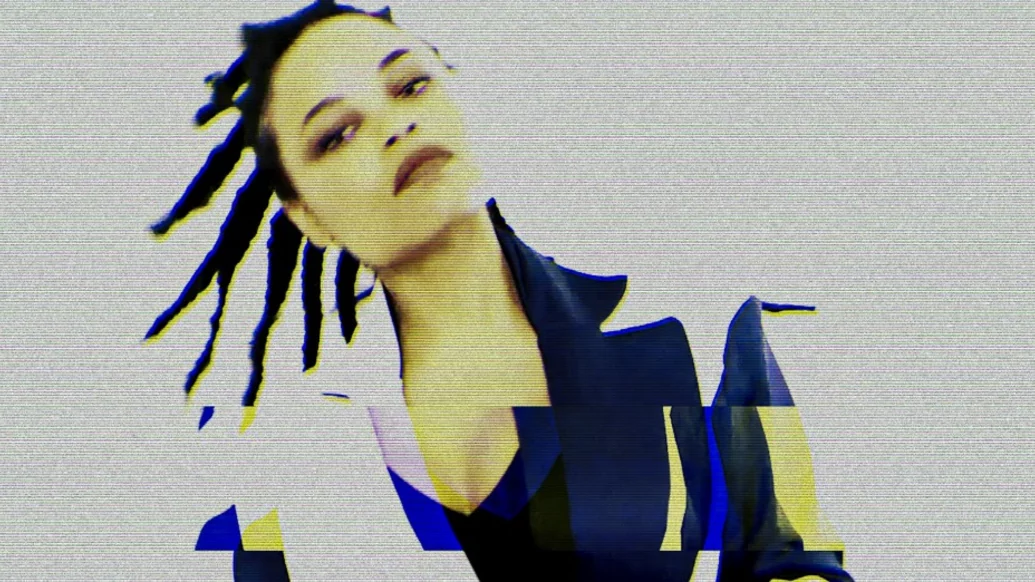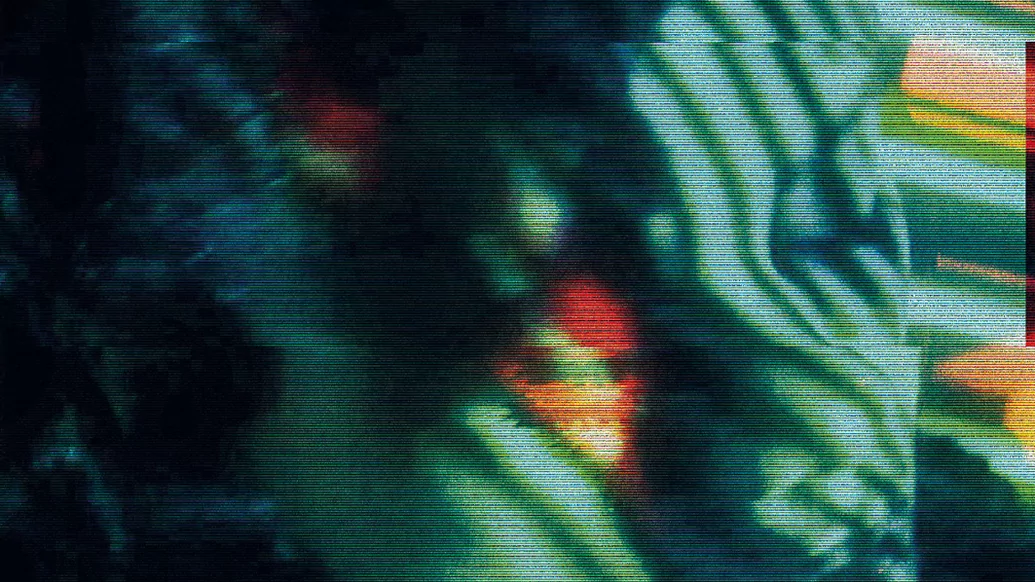Recognise: Shannen SP

Recognise is DJ Mag's monthly mix series, introducing artists we love that are bursting onto the global electronic music circuit. This month, London-based Hyperdub affiliate, Shannen SP, delivers a precision-tooled mix, and chats with Gabriel Szatan about creating connections between global black diasporic club sounds
Everything Shannen SP does comes with a purpose. Whether as a DJ, a recording artist, an A&R or a club booker, the adopted Londoner is resolute in what she wants to project and clear-eyed in how to go about that. The tricky part is, Shannen herself is in constant flux.
Shannen SP grew up in West Yorkshire, where she was exposed as a teen to soundsystem-propelled club nights like Exodus and SubDub. She moved to London for college, had a stint as a producer on NTS Radio, began working with Hyperdub, and started feeling out her confidence as a DJ. Only a few gigs in, she was on the decks at the third-ever Ø event at Corsica Studios – which just so happened to have Jesse Kanda, Mica Levi, Arca, and Björk as the other guest DJs. This kind of expedited levelling-up has been the story of Shannen’s career so far. But the important part is always what’s ahead.
A lot has happened since we last caught up with Shannen seven months ago, for July’s Hyperdub cover story. The label’s 15th anniversary celebrations meant on-off touring, taking the reins at Berghain in the summer, and hopping between Tokyo and Shanghai for some shows with Nazar, Silvia Kastel, Lawrence Lek and Kode9 just before Christmas. A particularly important trip came in September: she took the initiative to spend longer in Africa, off the shoulder of a solo booking at Uganda’s Nyege Nyege Festival. She visited family in Johannesburg, chatted over coffee with veterans of the Addis Ababa music scene about resisting cultural colonisation, and soaked up new sounds everywhere.

“What I’m doing isn’t that far away from techno. It’s just, Afrocentric techno. Kuduro might be different from techno, but there’s a DNA that binds them.”
This amalgam of influences and experiences feed into Shannen SP’s Recognise mix, the first of 2020. It is precision-tooled to bridge unique styles, twisting and turning between tarraxo, kuduro, gqom, amapiano, and even acid-dancehall. She’s still chiselling away at it the morning we are due to get on the phone, and just a few hours before she needs to catch a flight to NYC for a Friday gig at the city’s cherished Nowadays.
Another amendment follows when she is back home, rotating a few older tracks out to inject fresh energy in the mix. At some stage in this process, a breakthrough had occurred and the mix had found its form. A telling email arrives moments before our phone call gets rolling: “I’m thinking of calling it the Ebonics Mix.”
The theme, Shannen explains, “is about different styles of music from different black populations, making communication between different populations of the diaspora. I feel like someone who’s grown up in Jamaica could interact with the music of Angola and really work with it. I honestly feel like someone who listens exclusively to UK drill would love kuduro as well.” There’s techno in there, too, and she’s keen to emphasise this at multiple points in our chat, even if her style isn’t necessarily in line with the established orthodoxy – yet.
“What I’m doing isn’t that far away from techno. It’s just, Afrocentric techno. Kuduro might be different from techno, but there’s a DNA that binds them.” She follows up on this a little later, when singing the praises of Principé, the Lisbon collective that turned club music on its head in the 2010s. For Shannen, Principé’s artists have all the physicality, “crazy melodies” and futuristic promise of first-wave Detroit techno – and she’s exasperated with why such a futuristic sound is not more popular: “Why aren't they played more? Why aren't they at the big festivals? I feel like a lot more doors should be open.”
Shannen’s approach can be traced back to what became known as the era of deconstructed club, a mid-2010s revolt against the strictures of house and techno, and a necessary corrective to scene that was closed off to all but white Europeans. This guides Shannen’s way of seeing things; she stresses the similarities where others might stress the differences, eager to explore new combinations and possibilities, and prioritise impact – or even disruption – where needed.

That being said, she’s wary of being tagged as an exclusively experimental DJ, a label that has followed her by proxy due to her curation role at Ø. By visualising how her style would work in the context of a techno club, she is tacitly pushing back at a lazy musical Othering. “Being put in one box is a risk,” she carries on. “One day what you’re doing is the hottest thing ever, then the next, nobody wants to be associated with you, even if it was really good.”
She lasers in on the point here. “Look – I really respect deconstructed club. It was such an important change of energy, giving birth to people being able to go into the booth and play diasporic music. It gave so much visibility to people of colour and queer people, who all came in on that wave. The one thing that I sometimes didn’t like about it was when it tipped into IDM territory. I don’t want to go out on a Friday or Saturday night and not be able to dance.”
That renewed emphasis on movement is clearly heard on Shannen’s Recognise mix. It begins with new material from Nazar’s forthcoming album ‘Guerilla’, a gripping collection of wartorn “rough kuduro,” on which Shannen has contributed vocals. In the early stages textures scrape, claps rain down like hail, drum percs meet shouts in the topline, and a new rhythm seems to overtake at the front of the marching pack constantly. After a detour around the 15-minute mark into the familiar strains of reggae star Ghost’s timeless ‘Come Back Again’ (which flips the earworm melody from Suzanne Vega’s ‘Tom’s Diner’), the mix surges ahead. Transitions are ultra-tight, if not instantaneous. Attention-grabbing moments flare like sunspots – and it doesn’t let up until the end.
There’s a pair of tracks from Vigro Deep, a star of the popular South African shoulder-rolling style known as amapiano; an extended section of what Shannen describes as “guttural industrial gqom”; we get one cut from Uruguayan group F5 and another from the group’s in-house producer Lechuga Zafiro, who has performed at Ø and was a collaborator on 2019’s breakout 33EMYBW album ‘Arthropods’. The voice of Johannesburg’s MaWhoo is still there echoing softly around your head while you race to translate the raunchiest bars from Brazil’s colourful MC Nick, the voice of Johannesburg’s MaWhoo arrives to sooth.
You might have a challenge processing it initially, with a new language or percussive line sluicing across the mix every other minute, but once you submit to the mix’s internal logic, it becomes an arresting game of staying on your toes and priming yourself for whatever’s next. You start to feel the tension in the sinews of your muscles. It’s dizzying, and brilliant.

Standing at the precipice of a new decade, Shannen wants to build on her roots in avant-garde abstraction. She has an ambition to break down bigger doors. There are new ventures in the works with close allies that have to be kept under lock and key at present, but details will become public soon. She has an enviable source of music arriving in her inbox 24/7, some so fresh it eludes categorisation or even a name. But she wants to cultivate a record collection that goes beyond digital crates, get comfortable switching between modes and formats, establish a specific musical personality, and push a meticulously constructed diasporic sound to audiences who could do with opening up their sensibilities.
For someone who draws her power from the fringes, techno comes up a lot in our conversation (partly, in fairness, due to retina-scorching memories of “Blade Trinity style” raves she witnessed in China). What Shannen is keen to master isn’t the wanton carnage of kick-drum onslaught, but the discipline and restraint. “I really do like the confidence of leaving a track playing for ages,” she says. “If you can call it a skill, that’s the skill I’m working on at the moment. Letting stuff breathe a little bit longer and getting comfortable playing four hour sets, not just 90 minutes. I feel like now I’m kind of teetering somewhere in the middle. I want to have constant flow, but I also want variation of rhythms and moments that leap out.”
Which is to say that the Shannen SP heard on today’s Recognise mix is unlikely to be the same form of Shannen SP we hear even a couple months down the line. But it is a snapshot of where she’s at now, corralling a world of geographies and voices and sounds and possibilities into a fluid whole. It’s on everyone else to keep pace.
Listen to Shannen SP's Recognise mix below, with Tracks by Nazar ft Shannen SP, Dj BeBeDeRa, DJ Doraemon, Swordman & Tom Blip, Hitmakerchinx, Ghost, Esa, Vigro Deep, Lechuga Zafiro, Griffit Vigo, Scratchclart, Citizen Boy, Woza Sabza, F5, DJ Nigga Fox, Shinedoe, Herva, Cygnus, Nazar, Dj Laton, PML Beatz, J-Lin and RP Boo.






